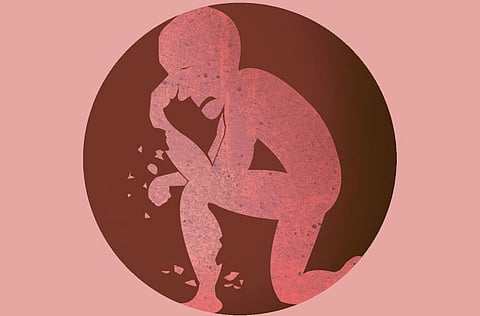Libya's future remains uncertain
Its doubtful whether reconciliation will heal wounds of years under Gaddafi's regime and those after the revolution

I am back in the Libyan capital Tripoli, a year after I was captured by Muammar Gaddafi's forces. On March 8, 2011 I was picked up at an army roadblock near Tripoli along with two BBC Arabic colleagues. I was imprisoned, beaten and subject to mock executions at a compound just outside Tripoli. The compound was the scene of one of the worst single atrocities of the conflict and I have returned to meet the perpetrator and two of his victims.
When I meet the man who threw hand grenades into a room crowded with over 50 prisoners, he says he is filled with remorse. Ebrahim Tajouri threw the grenades and fired a hail of bullets into the crowded warehouse.
Hussain Al Lafi and his three brothers were held at the same compound, as I was, for eight weeks accused of supporting the rebels. Hussain told me: "We saw them throwing hand grenades inside." He explains that the first one exploded in the middle of a room crowded with men. "Between the second and third grenades Ebrahim Tajouri came in and started shooting," he says.
Bashir Al Sadeq was also held in the warehouse. Asked about Ebrahim Tajouri shooting the men he says: "Yes, he came inside and emptied more than three magazines."
Hussain describes how he called out to his three brothers in the warehouse: "After the shooting stopped, I pushed the dead bodies off me, the first thing I saw was Jamal lying on top of a pile of bodies, his eyes were open, I called him, ‘Jamal, Jamal' and he didn't answer. Then Osama called out to me and said: ‘My brother, I've been hit in the heart', I could see that he had been hit in the heart and in the shoulder and the bottom of his leg was missing!' Next to the wall was my older brother, Mohammad, I touched him and I could feel that his leg was missing, he said to me ‘Run away, save yourself, and go tell the world that we've been slaughtered'."
In the confusion of the explosions and the shooting Hussain was one of the few prisoners who managed to escape. Those left behind didn't stand a chance. The soldiers finished off any wounded survivors one by one and set the place on fire.
A few days later, one of those responsible, gave himself up and was taken into custody. Waving his right to anonymity, Tajouri agreed to meet me. He alleges he was following orders from his superior. Tajouri told me: "When the rebels entered Tripoli, Mohammad Mansour who was the prison commander gave orders to kill the prisoners.
Full of guilt
He came to the detention centre where the prisoners were being held, he threatened us with his gun and said that ‘you must kill them now', so we got some hand grenades and threw them at the prisoners." I ask Tajouri how he feels about what he did now. He says, "I took drugs, I wasn't in control of my actions. My conscience is full of guilt because of what I have done. I ask them for forgiveness."
A few days later, with their agreement Hussain and Bashir came with me to face Tajouri. It's the first time they've met since the massacre. Bashir confronted Tajouri and said: "When you entered you finished off a group which included Shaikh Mohammad Allafi, he was kneeling down and you shot him in the back. That was my brother. Then you turned and you shot the group [..] which included the Egyptians and the old Palestinian man who was about 80 years old. You emptied nearly four magazines. You killed Shaikh Ramadhan when you turned towards him and shot him four times — Don't tell me you don't remember!" Tajouri says: "I don't remember, I was under the influence of drugs."
I ask Tajouri what he has to say to the two men who have suffered so much. "I would ask them for forgiveness. Forgiveness in this life and the next," he responds. But Hussain, who lost his three brothers and Bashir, is not convinced.
Hussain says, "If I had a weapon I would finish him off, but we hope he will be tried quickly." I ask Bashir if there any chance for reconciliation. "As far as reconciliation is concerned," he responds, "After they have been punished by law, then national reconciliation can take place. But without justice there can be no reconciliation."
The old wounds of years under the Gaddafi regime, and the newly inflicted wounds after the revolution, mean the future in Libya remains deeply uncertain.
Feras Kilani is a BBC Arabic reporter.



